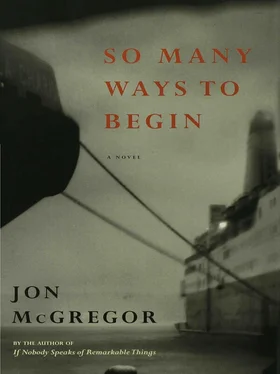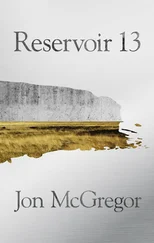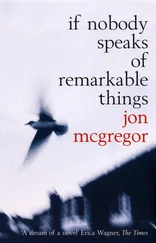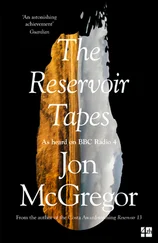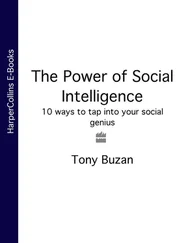The nurses saying come on, just a little bit more, we're nearly there now, howling out a cry which seems to burst from somewhere in her spine, and the baby is born and it's over. Looking on in dazed confusion as the baby is lifted, cleaned, examined, and the cord cut. Someone telling her to push just a little bit more, and the afterbirth being scooped up and removed. A nurse wiping her down and giving her an injection. The baby being carried away, and her eyes following it out of sight before she falls into a long, dark, drugged sleep. Julia didn't tell him any of this. Julia didn't tell him anything. Soon after the day she first let the secret slip, forgetting for a moment that it was supposed to be a secret at all, she went into a sudden decline. She forgot his name. She forgot Dorothy's name. Eventually she seemed uncertain of who they were at all, although they always told her when they arrived, and she always smiled in pretend recognition, gamely entering into conversation with them for a moment or two before losing her thread and gazing vaguely out of the window. Her body began to age rapidly. She lost weight. Her skin scrunched up into an old woman's wrinkles, her hair thinning out until there were only a few loose wisps floating around her scalp like a halo. Her eyes began to sink back into their sockets, and her shoulders started to round and hunch forward until she looked twenty years older than she was. She rarely looked at them when they spoke, and if she did she showed few signs of understanding what they said. But even when it came to feel useless, he kept asking her about what she'd said.
Auntie Julia, he'd say, can you remember Mary? Do you remember the young girl with the baby? What was her second name again? I can't remember. Where was she from? She'd look at him, her eyes empty of expression, the makeup she insisted on applying each morning beginning to look out of place, frowning or nodding or looking right past him. Whatever happened to that girl — Mary? he'd say, hoping to catch her in one of her lucid moments. But he never did. She'd only ever gaze back at him, or out of the window, or turn and look for her cigarettes.
I'm awfully sorry my dear, she said once, tapping ash into a saucer, but sometimes you do seem to talk such absolute bloody sodding nonsense, really you do.
He got desperate. He asked her over and over again. He took photographs in to try and prompt her, photographs of her and his mother during the war, of his mother and Susan, of her house. Her puzzlement seemed to turn into amusement, as if the whole thing was a game. Is it time to go home yet? she'd sometimes say, getting to her feet and looking around for her coat. No Julia, he'd have to tell her, it's not time to go home, not just yet.
There was one thing, his mother admitted to him once. There was one thing Julia told me, a few years after, she said. She told me the girl had a bad time of it, told me they thought they were going to lose her, she said. And it was obvious, after so many years of silence, how difficult it was for her to have told him even this much. But it wasn't enough. It was nowhere near enough. Nothing she could ever have told him would ever be as much as he wanted to know, and so he started to fill the vast gaps for himself, to read books about London and Ireland, to buy maps and brochures and magazines, to lie awake at night until he could make a story, any story, to fit.
Perhaps it was raining when she got off the bus, but she was already feeling better, just standing by the side of the road and breathing in the wet air. Everything feeling familiar, at last. The loose chippings on the tarmac beneath her feet. The walled-in tree where the bus was turning around. The frosted glass window of the shop on the other side of the road. The boxes of vegetables on a trestle table outside the grocers. The noticeboard by the bus stop behind her.
The bus turned its circle and drove back up the hill, and the place was quiet except for the water running along the gutter into the drain, a steady slurping gurgle, the same song of streams and ponds and falling water that she'd always known and grown up with. She looked at the wet grey veils of the sky, smiling for the first time in weeks, months, wiping the dampness from her face. I don't mind a bit of rain, she said, beneath her breath, and picked up her suitcase.
It was nearly three miles from the bus stop to her family's house, but the rain-sodden walk seemed to take no time at all, and the suitcase which carried the last two years of her life was as light as a handful of feathers in the clutch of her fist. Every step of the road was just as she'd dreamt it all the time she'd been away. Every step took her further away from the smoke and the noise and the loneliness and fear of the city she'd left behind. Every step drew her deeper into the hollows of the landscape, the green hills and shining rivers and mist-tangled treetops, as though she was clambering into the postcard she used to keep propped up on the mantelpiece of her small room at the top of the big house. The rain didn't let up, and the damp seeped through her thin clothes, clinging to her skin, the whole place wrapping itself around her, but she couldn't stop smiling and she felt like yelling her hello again into the hills. She was soaked by the time she was halfway home, but she knew that when she opened the door there would be a smouldering fire, a kettle on the stove, a slab of cake in the larder. She knew that the neighbours would be sent for, her brothers called in from the fields, the bottle of whiskey brought down from the sideboard.
Perhaps she remembered with a sudden cold shiver why she was there now, how different this walk might have been, how much colder her reception would be then, and she knew that she'd done the right thing. She told herself again that she'd done the right thing.
She passed the house at the top of the rise, and saw old John there in his open barn, still fiddling with that useless lump of a tractor that no one had ever seen run. His wife was coming out with a cup of tea for him, a ragged cardigan wrapped around her shoulders; she called out a little hello to the two of them as she walked past. They raised their hands and gave her a how're you doing there, and then they looked at her twice and their faces lit up in recognition. She smiled, but she kept on walking. They'd be along down the road soon enough, too wise to say they were the ones who saw her first, and she could say a proper hello then.
And then she could see her house at the bottom of the hill, caught between the road and the strip of woodland which ran along by the stream. There was a curl of faint yellow smoke lifting into the mist, and somebody moving around down in the yard. There was a good tall stack of turf by the side of the house. One of the dogs was ambling around in the yard, getting under the feet of whoever that was down there, getting in the way of whatever it was they were doing.
She'd done the right thing, she told herself. He'd be alright where he was, he'd be safe and well, it was the right thing to do; she said it to herself like a prayer.
Halfway down the road, while she was still far off, the man in the yard, her father, happened to turn round and catch sight of her. He looked up, lifting a hand to his forehead, as if shielding his eyes from the absent sun. He took a few steps in her direction, stretching his head forward. She kept walking. She didn't wave. Or perhaps she stood still and she waited. Perhaps then there was a moment's doubt in her mind as to how she might be received, how fast news and gossip and broken secrets might travel. She gripped her suitcase tighter and the thought that she could always turn and flee entered her head, the knowledge that with the case in her hand she could carry on her exiled life; but it was a small thought, and she did her best to blink it loose, to let the rain wash it away. She kept walking. Her father dropped the tools he was holding, lifted his head to call someone from the house, and ran towards her, his steps clumsy and lumbering, the dog barking suddenly now, confused, running a tight circle around the yard and then outpacing her father towards her. She kept walking. Or she stopped and she waited. She tried to keep the smile from breaking out all over her face, or she didn't, and when her father had nearly reached her she saw the door of the house open and her mother appear, wiping her hands on her apron, looking first to the yard and then to the commotion on the road, lifting her hands to her mouth, stepping towards them, breaking into a scurrying run. And already, while her father was still rushing to meet her, breathing hard, his muddy boots clumping on the tarmac, she could feel the all-encircling bulk of his embrace, the tickle of his woollens on her face, the rub of his chin on the top of her head, the pad and scratch of the dog jumping up to claim his place in the moment, the rush of her father's breath in her ears, the rich mumble of his voice saying ah now, Mary, it's been a while has it not? And she knew that she'd done the right thing. She told herself again that she'd done the right thing.
Читать дальше
Конец ознакомительного отрывка
Купить книгу
